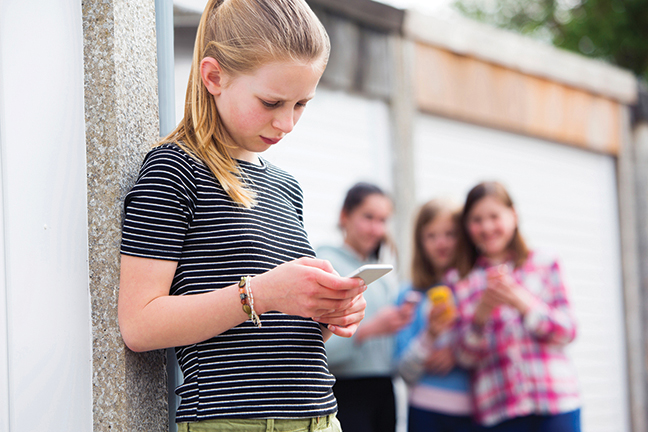Is social media hurting your teen’s mental health?


World Teen Mental Wellness Day was March 2, which aims to raise awareness about the mental health issues teenagers deal with, including the impact of social media.
According to the American Academy of Pediatrics (AAP), 90 percent of teens aged 13 to 18, use multiple social media platforms, with more than 60 percent engaging with them every day. While social media does have the ability to create social connection and help find other people with common interests, it may also have downsides when it comes to emotional well-being.
For example, studies have linked heavy social media use with an increased risk of mental health problems, such as depression, anxiety, loneliness, negative body image and self-harm.
“It’s important to educate ourselves and make an effort to destigmatize teen mental health issues that are becoming increasingly common,” said Stacie Simkins, counselor and clinical therapist. “We often fail to understand what teenagers go through and the stigma associated with mental illness can make teens reluctant to ask for help.”
It’s recommended to look for the following signs and asking a teen the associated questions, to spot if social media may affect their mental health:
• Your teen’s IRL relationships are suffering. Do you spend more time with virtual friends than real-life ones? Do you check social media when you’re out with your social circle?
• Your teen feels envious or angry. Do you compare yourself harshly to others on social media? Does this make you feel bad about yourself?
• Your teen is distracted. Does social media interfere with your work, school or home responsibilities?
• Your teen is losing sleep. Do you check social media before you go to bed and as soon as you wake up?
• Your teen feels worse after using social media. Do you feel more anxious, stressed, lonely or sad?
• Your teen is spending more time alone. How do you spend your alone time and how does it make you feel? When was the last time you took a break from screens?
“Kids and teens require more social interaction than ever, as it’s important for their cognitive development and for fostering a sense of social self-identity within their peer group,” said Simkins. “If they’re reaching for their phones for distraction before reaching out to a friend for social interaction, loneliness can build and exacerbate any existing mental health conditions. On the other hand, high-quality friendships and peer relationships can help protect against these conditions.”
Many aspects of social media can be good. So, a teen doesn’t necessarily have to go cold turkey or close all their accounts to protect their mental health. For many people, it may come down to developing healthier social media habits.
The following are steps from AAP to take, to help promote positive social media use for the whole family:
• Establish a family media plan for rules about social media use. Make sure to follow rules and role model healthy use for the family.
• Have open communication with kids and teens about their media use, including how they are using these platforms. What do they like about them? Have they seen anything concerning? Make this an ongoing conversation.
• If a parent uses social media, be sure to role model positive actions. For example, put away the phone at important family times, such as during dinner or during family time.
• Be cautious about children under 13 years old using social media. Most platforms set 13 as the minimum age to sign up.
For crisis intervention support, call 988, 911 or proceed to a local emergency department.
“Unfortunately, mental health struggles are common in teens,” said Simkins. “Caring for your teen’s mind is just as important as caring for their body. It’s important to encourage open conversations and increase awareness to help teens around the world.”




